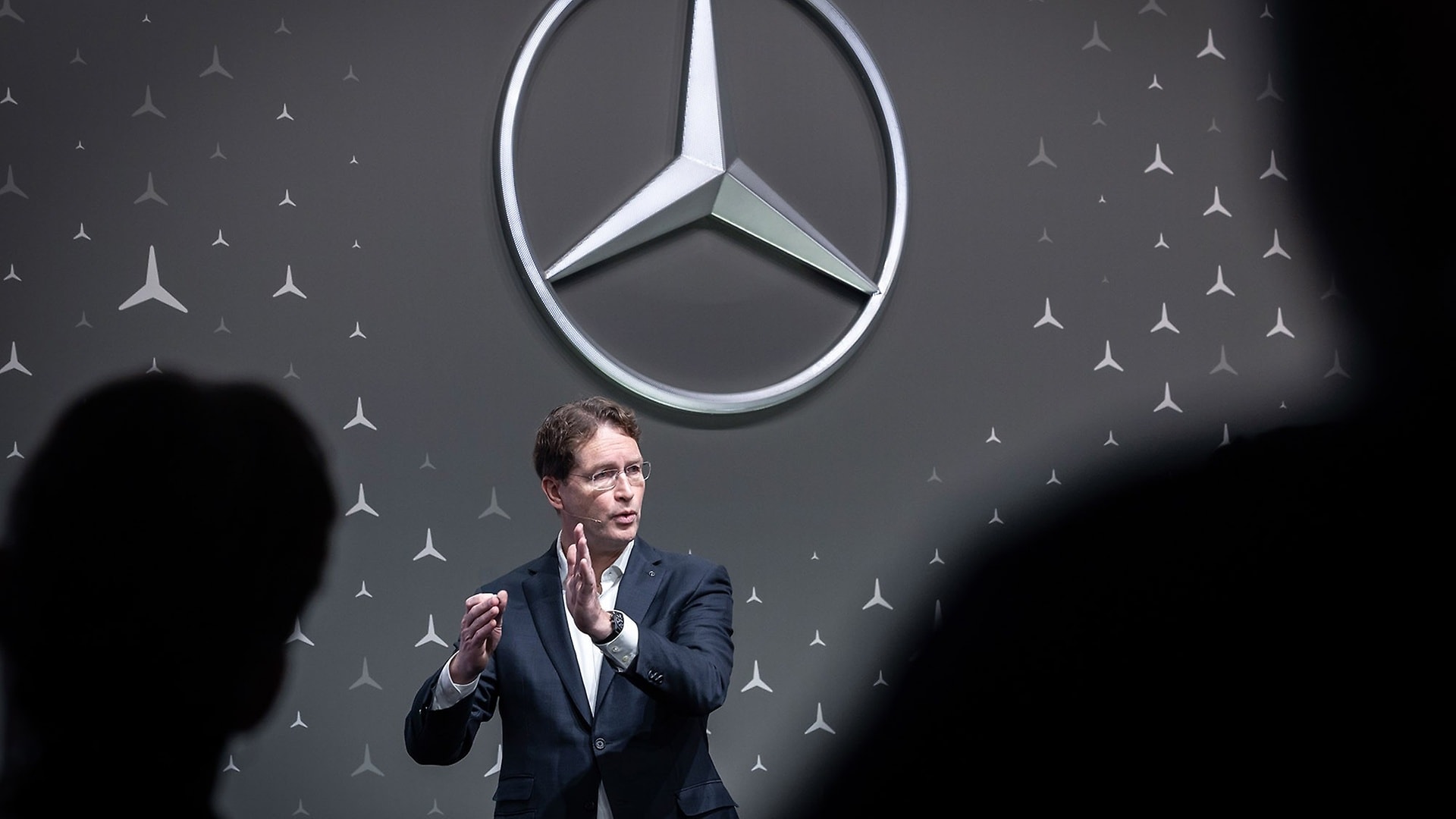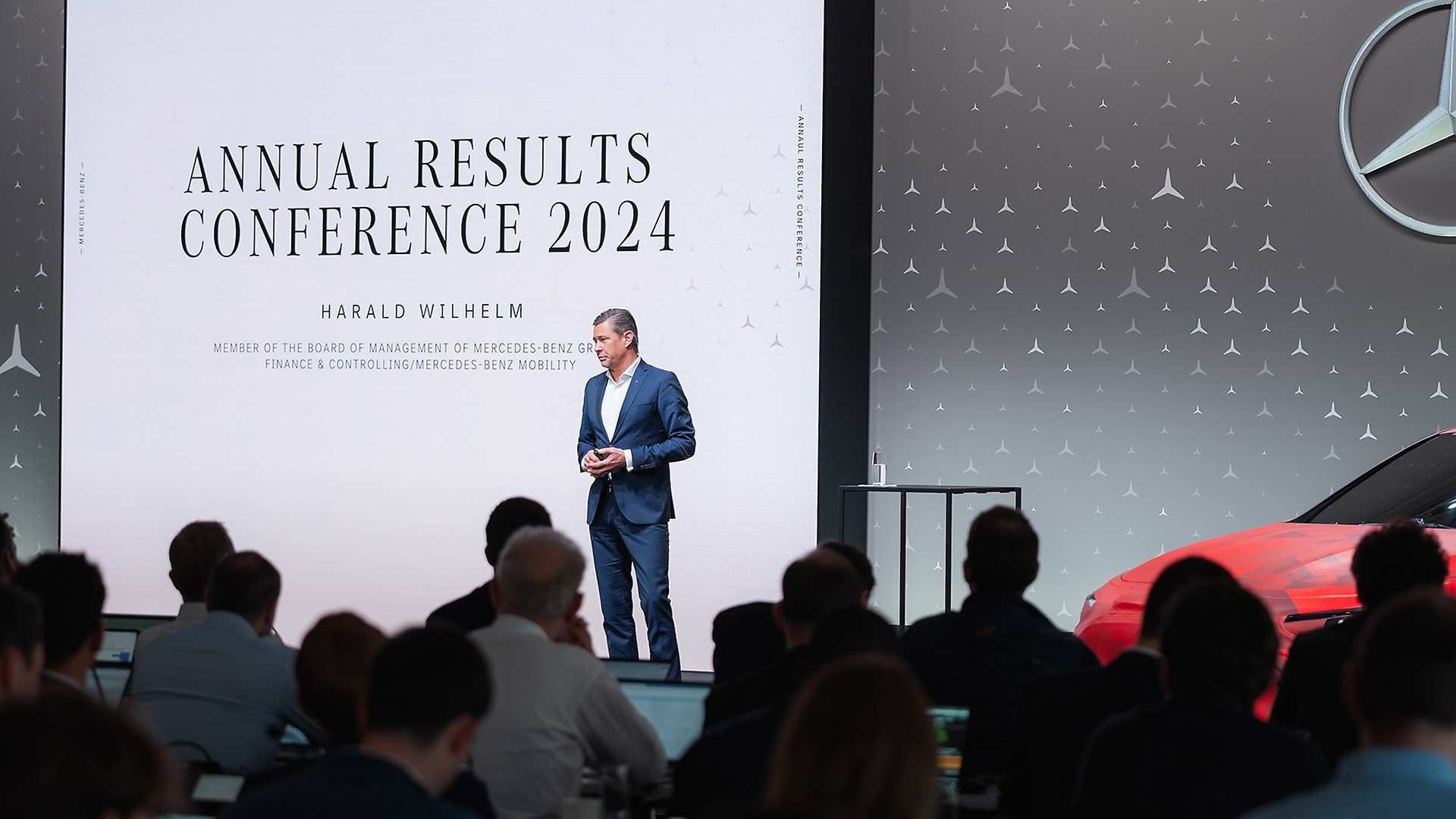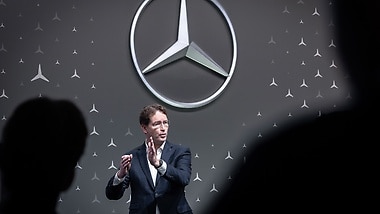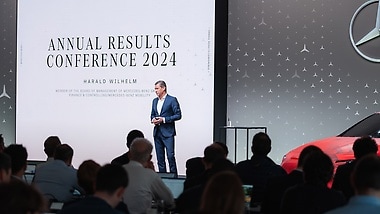Production: Mercedes-Benz Group is adapting its cost base with a raft of measures. The company plans to cut production costs by 10% until 2027 after using the past years to adjust its nominal production capacity. This, among other factors, resulted in an exit from plants in Hambach (France), Iracemapolis (Brazil) as well as CKD plants in Russia and Indonesia. A powertrain plant in Poland is being transformed into a future production site for Vans and the sale of a Van plant in Argentina is another step towards adapting the company’s global production footprint. Global production capacity for passenger cars is planned to be reduced from 2.5 million in 2024 to between 2 - 2.2 million units by 2027, while retaining the flexibility to readjust, as the product launch campaign gains traction. There are no plans to shut down plants in Germany. Production capacity at each German plant is being balanced at an average 300,000 units. A core segment model will be added to the production lineup in Kecskemet (Hungary), where capacity is being added to take advantage of factor costs which are roughly 70% lower than in Germany.
Mercedes-Benz will make greater use of digitalization and AI, adopting a ‘digital first’ approach. Thanks to digital twins, Mercedes-Benz can plan potential moves of models between plants, including ramp up times and retooling, without having to significantly interrupt real-world production.
Local for local: By 2027 the share of local-for-local production is planned to be increased from 60% to 70%. An additional Core segment model could be allocated to the United States and a long-wheelbase version of the GLE will be localised in China by mid-2026.
Material Costs: Suppliers are engaged in a dialogue with Mercedes-Benz procurement and engineering teams to reduce material costs by challenging specifications and the design of components to identify where cost can be reduced through standardization and technical refinement. One result is earlier and deeper integration of key suppliers in the development process. Material costs will be tackled in close collaboration with suppliers. The BEAT26 program aims to jointly achieve long-term and sustainable changes to cost structures in procurement for both Mercedes-Benz and its partners.
Fixed Costs: Mercedes-Benz achieved a 19% reduction in fixed costs between 2019 and 2024, net of inflation. An additional reduction of more than 10% is being targeted over the next three years. To achieve this, the company is, among other things, in constructive discussions with its works council. Moreover, opportunities are being evaluated to determine how Mercedes-Benz sales and financial services organizations can work more closely together, to cater to customers across the different touchpoints more efficiently. In addition to selling its own retail business in Germany to experienced dealer groups, the company plans to further reduce management positions and increase the use of digitalization and generative AI to streamline processes.
,xPosition=0,yPosition=0.5)








,xPosition=1.0,yPosition=0)